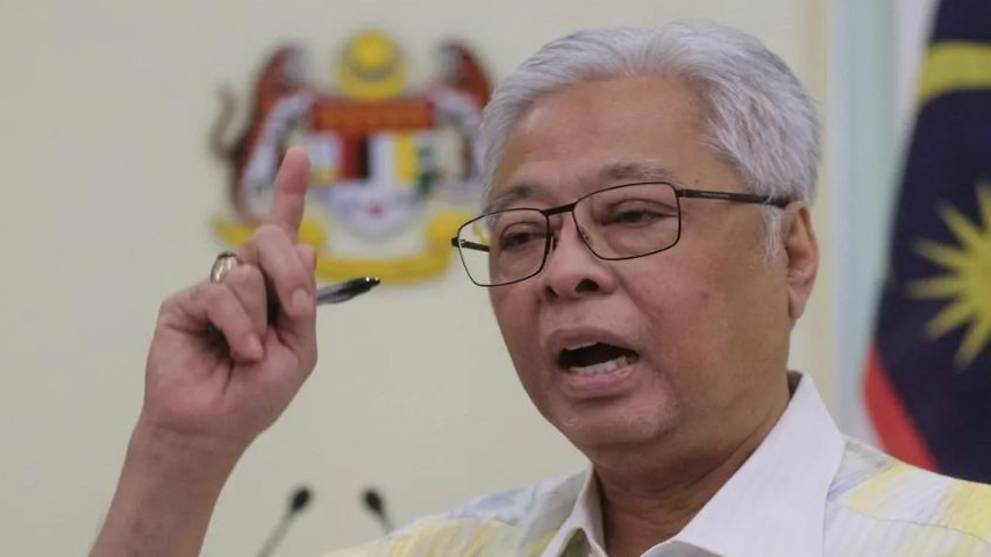
Kuala Lumpur: Following a rapid increase in the number of COVID-19 cases, the Malaysian government announced on Monday (Oct 12) that Kuala Lumpur, Selangor and Putrajaya will be put under a Conditional Movement Control Order (CMCO).
The tightened restrictions will be enforced from Oct 14 until Oct 27.
During a press conference, Senior Minister Ismail Sabri Yaakob said that a special meeting with the National Security Council (NSC) has found that the cases in the three places have increased at an "alarming rate".
"After consulting the Ministry of Health and taking into consideration the increase in cases and the spreading of the virus in areas such as Petaling, Klang and Gombak, this was decided.
"Therefore to break the chain of infection, the special meeting today with the NSC has agreed that CMCO will be enforced in Kuala Lumpur, Selangor and Putrajaya effective 12.01am on Oct 14 until Oct 27," he said.
The minister explained that prohibited activities include inter-district travel. He added that those who needed to make the journey will need to have letters from their employers or a working pass.
"Besides that, only two people from each household are allowed to leave home to get necessities.
"Schools, daycare, public parks and recreational centres will be closed, as will temples, mosques and other places of worship. Additionally, weddings and social gatherings will not be allowed and pubs and nightclubs cannot operate either," he said.
However, Mr Ismail Sabri said that the economic sector would be allowed to continue operating. He added that a more detailed version of the SOPs will be updated soon.
Malaysia is currently under the recovery phase of the MCO, which was implemented since Mar 18 to curb the spread of the coronavirus.
Restrictions were largely eased in the recovery MCO phase, which saw daily lives almost returning to normal. Schools have earlier reopened and businesses have been allowed to resume operations, while domestic travel is encouraged to help revive the tourism industry.
Back in May when Mr Muhyiddin announced the country’s transition from MCO into the CMCO, interstate movement was still banned although most economic sectors of the economy had reopened by then.
Those that remained closed involved mass gatherings, where social distancing would be more difficult to enforce, such as entertainment centres, including cinemas and nightclubs, reflexology centres, and festive bazaars during the Ramadan and Hari Raya Aidilfitri period as well.
The tourism industry itself would slowly resume, as the government gradually reopened Malaysia's economy further, first by allowing interstate travel on Jun 10.
This was followed by the announcement later the same month, that the Meetings, Incentives, Conferences and Exhibitions (MICE) industry, travel and trade fairs, as well as spas and reflexology centres could reopen by Jul 1, but with strict Standard Operating Procedures (SOPs) in place.
READ: 'No total lockdown as yet', says PM Muhyiddin as COVID-19 cases continue to spike
The pandemic appeared to be under control in Malaysia between June and August, until cases started to rise again in September. The sharp rise was due in part to the surge in travel to and from Sabah for the recently concluded state election.
On Monday, it was also announced that Sabah will be placed under CMCO from Oct 13 until Oct 26.
The highest daily case recorded since the rise in September was 691 cases on Oct 6. It was the highest ever recorded in the country.
As of Sunday, Malaysia had a total of 15,657 cases and 157 deaths with 4,587 active cases.
BOOKMARK THIS: Our comprehensive coverage of the coronavirus outbreak and its developments
Download our app or subscribe to our Telegram channel for the latest updates on the coronavirus outbreak: https://cna.asia/telegram
https://news.google.com/__i/rss/rd/articles/CBMiaWh0dHBzOi8vd3d3LmNoYW5uZWxuZXdzYXNpYS5jb20vbmV3cy9hc2lhL2NvdmlkLTE5LW1hbGF5c2lhLWNtY28ta3VhbGEtbHVtcHVyLXNlbGFuZ29yLXB1dHJhamF5YS0xMzI2MzE1NNIBAA?oc=5
2020-10-12 09:37:45Z
52781114645532
Tidak ada komentar:
Posting Komentar